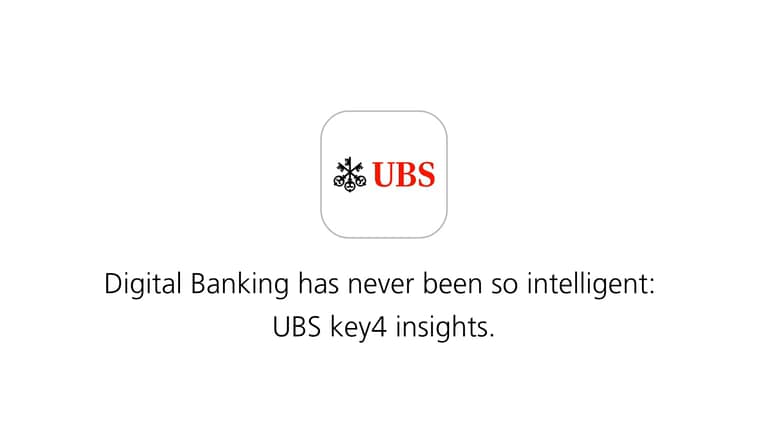We’re here for you
Arrange an appointment for a non-binding consultation or if you have any questions, just give us a call.

![]()
header.search.error
Credit cards
Credit cards are straightforward and offer many benefits. Learn how you can easily keep track of your expenses and optimize your budget with credit cards.
Content:

Credit and debit cards offer different advantages and security features that can vary depending on your needs and how they are used. More and more people are regularly using bank cards to make payments. Unlike a traditional credit card, where the bill is only paid at a later date, with a prepaid card only the amount already added to the card can be spent. These cards are a flexible and secure way to manage your money and make payments without debiting a bank account or using credit. By contrast, with debit cards – which are particularly popular among Swiss people – all expenses are immediately debited from the linked bank account.
An essential security advantage of credit cards is that in the event of theft or fraud, your bank account is not directly accessed. With a debit card, the amount is deducted directly from your bank account.
Furthermore, no interest is charged on credit card debt, provided that the bill is paid on time and in full. Traditional credit cards also have the advantage of being accepted worldwide and are often associated with attractive bonus programs and insurance benefits. They make major purchases possible and allow you to pay back the amount conveniently in installments. This gives you financial flexibility and allows you to benefit from numerous additional services.
Whether credit, prepaid or debit card, a representative online survey has shown that the majority of Swiss people are extremely satisfied with this method of payment. One reason, in addition to their ease of use, is the numerous additional services and benefits they offer. But only very few people know that bank cards are also an ideal way to optimize their budget.
The meticulous listing of all expenses has many advantages. For example, you can more easily identify potential savings or expenses that you barely notice in everyday life, allowing you to avoid excessive costs. And it means you should have more money available for important things such as retirement planning.
But despite these arguments, many people find it difficult to make a list of every item themselves. Certain expenses are quickly forgotten, making the list incomplete from the start. Collecting all the data is also time-consuming and labor-intensive. Bank cards make this easier and offer numerous ways to keep track more easily and even optimize your budget.
In UBS Mobile Banking for example, your transactions are analyzed, allowing you to keep track of your finances and giving you valuable insights into your spending habits, as well as tips on saving and investing.
Many digital services linked to cards go well beyond the monthly credit card statement. With Mobile Banking you can keep an eye on your accounts and cards 24/7. UBS key4 insights makes it easy to manage your finances and understand your habits based on personalized analyses. You can then make better financial decisions and always have an overview of your expenses, budget and financial goals. UBS key4 insights in the UBS Mobile Banking App gives you a 360° view of your money. You can:

If keeping a regular eye on your expenses is not enough for you, you can adjust the limit of your debit card in the app or E-Banking. You can then determine in advance how much money you want to spend daily or monthly.
If, on the other hand, you wish to adjust the limit of your UBS Credit Card, please notify the UBS Card Center. You can apply by phone or by completing a form. The UBS Card Center will review your application and inform you of its decision. Alternatively, the fastest way to increase your limit is to make a transfer (payment to card) in E-Banking or Mobile Banking. The amount is available immediately.
Unlike debit and prepaid cards, credit cards offer numerous discounts and benefits such as:
Many users appreciate how easy it is to use their cards online and make purchases conveniently from the comfort of their sofa – always with the latest security standards.
The UBS KeyClub is a very special bonus program that makes using your credit card even more attractive. As a member of KeyClub, you collect points every time you use your credit or prepaid card. One point is equivalent to one Swiss franc. You can redeem the points in the eStore for vouchers or products from our numerous partners in the travel, events or electronics sectors. To enjoy this benefit, simply select the desired item in the eStore, pay for it with your points and receive your chosen product online or by mail.
If your card is lost or stolen, you should block it immediately. If you do this yourself in E-Banking or Mobile Banking, you will receive a new card free of charge.
Have you mislaid your credit or prepaid card, noticed unusual activities or do not need the card at the moment? You can temporarily freeze and unfreeze your registered cards for purchases, digital wallets and cash withdrawals directly in E-Banking or Mobile Banking free of charge.
Many people use a credit, debit or prepaid card but are not aware of how much potential for budget optimization they offer. All these cards make it easy to track how much money you spend and on what. As part of its Mobile Banking App, UBS offers UBS key4 insights for precisely this purpose – a comprehensive service that is available for free and at any time.
Setting a monthly limit can also help you save money, without constantly having to monitor your finances. Credit cards are another easy way to optimize your budget. You can also “load” credit cards by making payments to the card, allowing you to set a fixed budget.
Arrange an appointment for a non-binding consultation or if you have any questions, just give us a call.
Disclaimer